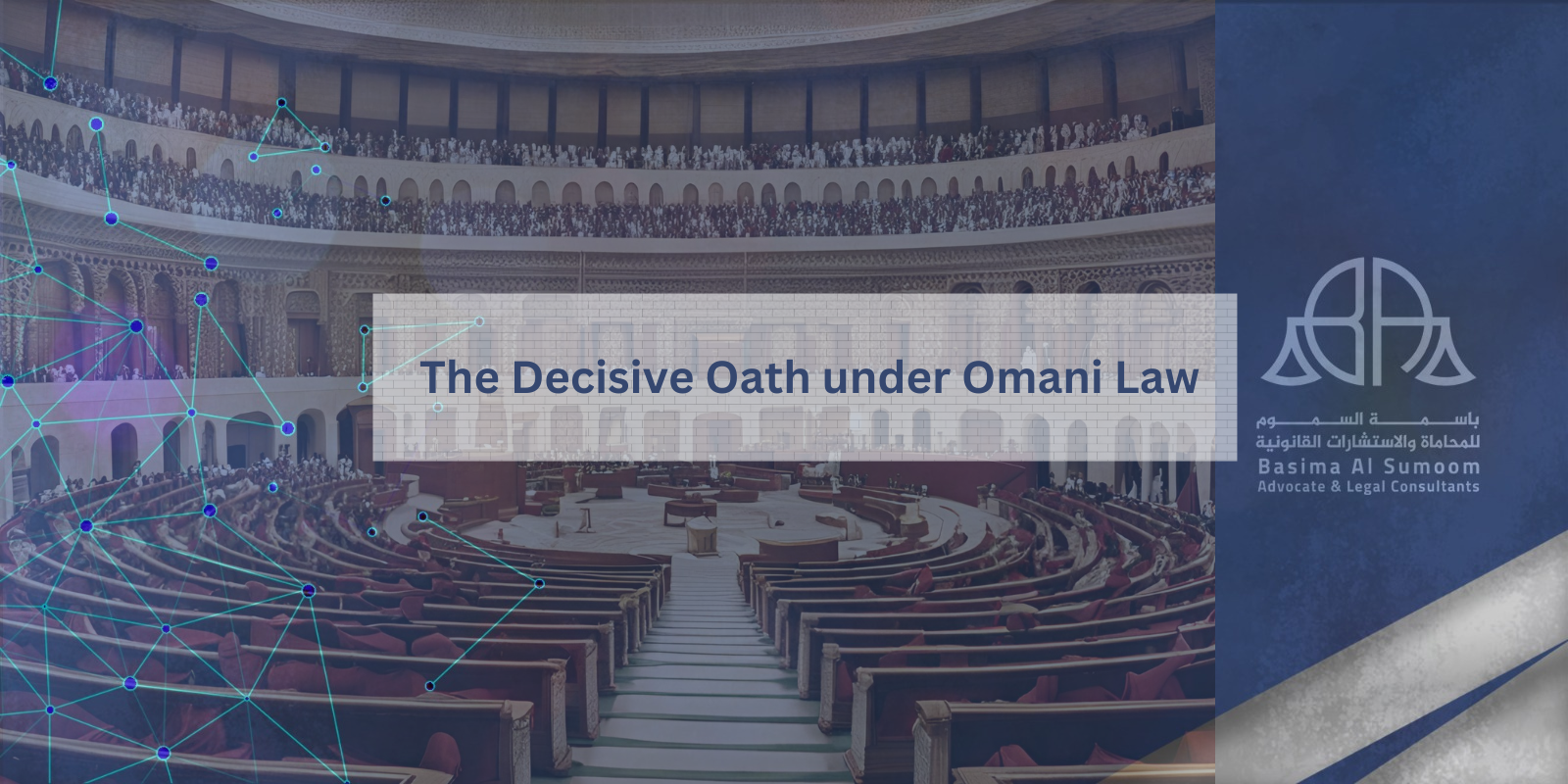In Omani civil and commercial law, the decisive oath, also known as the “assertory oath,” is a vital evidentiary tool designed to resolve disputes. Established under Royal Decree 68/2008 “The Law”, this mechanism allows either party in a legal case to challenge their opponent to swear an oath, subject to the court’s approval. This article examines the decisive oath’s procedural aspects, conditions, and implications in legal proceedings.
The decisive oath can be requested by either party involved in a legal dispute, allowing them to challenge the other party to swear to the truth of their claims. This request can be made at any point during the case. The judge has the discretion to allow or reject the oath, particularly if the request seems intended to harm, if the facts are improbable, or if sufficient evidence already exists through other means. The oath must directly relate to the person taking it or to their knowledge of the matter.
For individuals unable to provide evidence, the decisive oath offers an alternative route. For instance, a plaintiff may request the oath if they declare an inability to gather evidence, lack witnesses, or face issues with witness availability or credibility. The Law specifies that guardians, custodians, or agents of absent persons can only direct or reject the oath within their legal authority, and agents require a special power of attorney.
The party directing the oath must clearly state the facts and the exact wording of the oath, as outlined in The Law. The court can adjust the wording to ensure clarity but must not change the subject beyond what the requesting party has set. This ensures the oath remains focused and relevant.
The court may refuse the oath if it is misused or if the facts involved are irrelevant, improbable, or already established. The Law prohibits using the oath on matters that violate public order or morals, including criminal acts, gambling debts, or usurious interest. The court also has the authority to prevent the oath if it deems the request as an attempt to delay proceedings or harass the opponent.
If the conditions for the oath are met, but the party directed to take it disputes its validity or relevance, the court will rule on the objection. The party can retract their objection before the court’s ruling without being considered evasive. Should the court uphold the oath’s validity, it must specify the exact wording in its decision, and if the person directed to take the oath refuses, they are considered to have renounced it.
The oath is typically taken by declaring, “I swear by God Almighty,” with the court-approved wording. Accommodations are made for religious practices and for individuals who cannot speak, allowing gestures or writing as alternatives.
Refusal to take the oath without returning it results in losing the case. once the oath is taken, it overrides all other evidence regarding the matter, and it cannot be challenged as false afterwards.
The decisive oath in Omani law is a powerful tool that can significantly influence the resolution of civil and commercial disputes. The Law provides a detailed framework to ensure the oath is used fairly and ethically. Understanding the procedural requirements and implications of the decisive oath enables parties to effectively navigate their legal disputes, using this mechanism to secure a definitive resolution when other evidence is insufficient.




